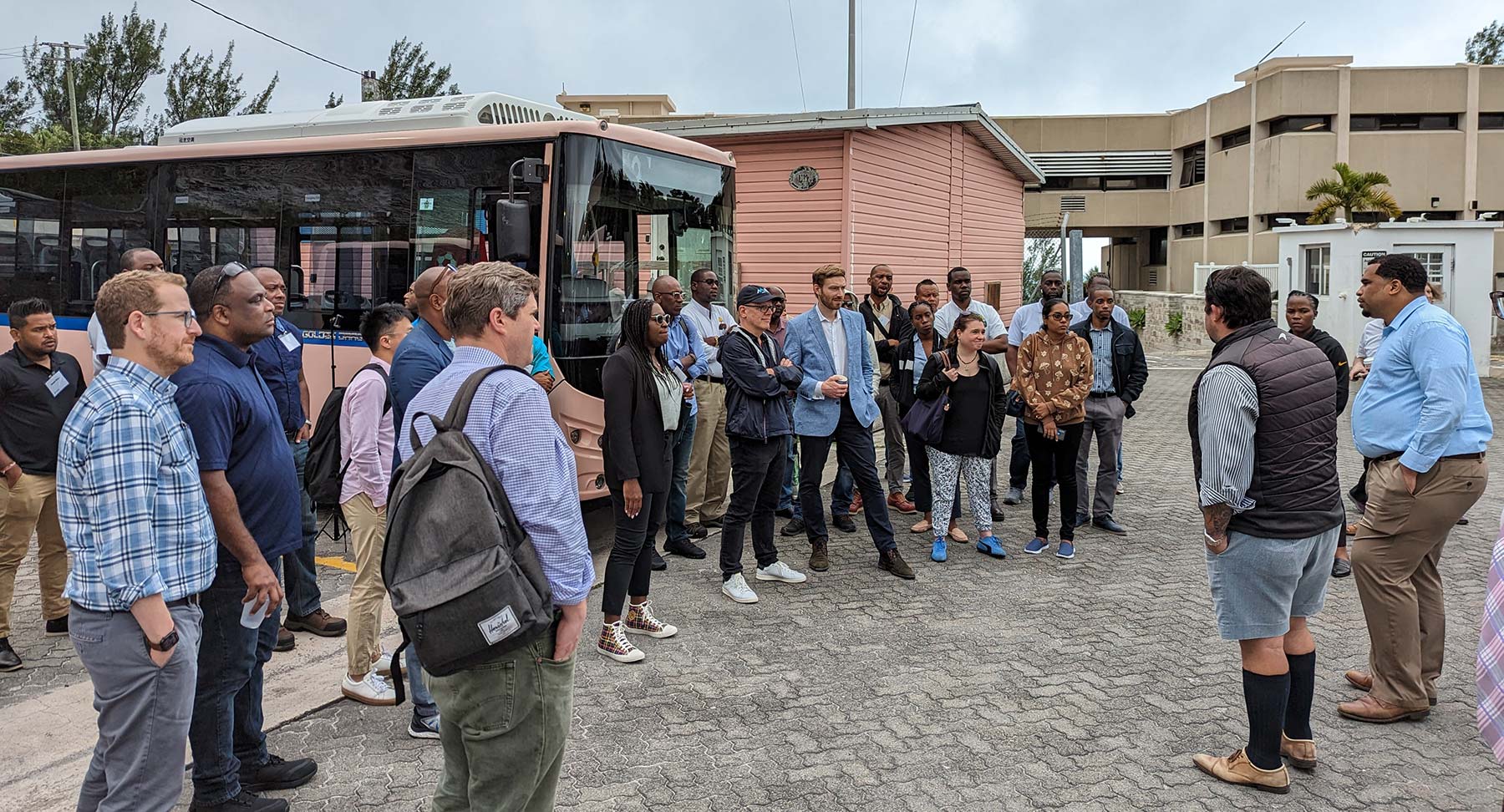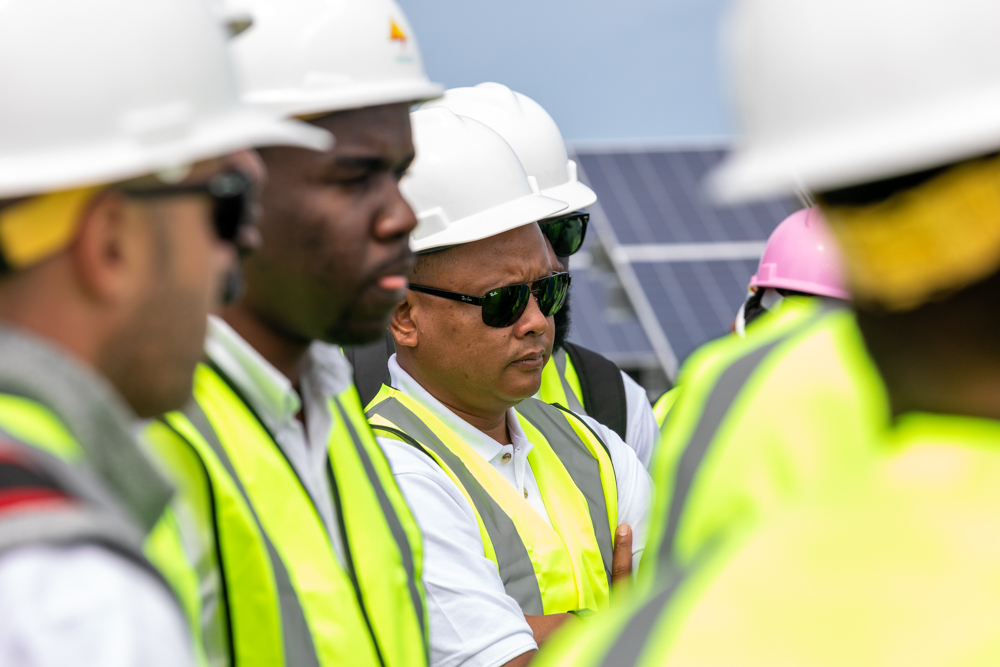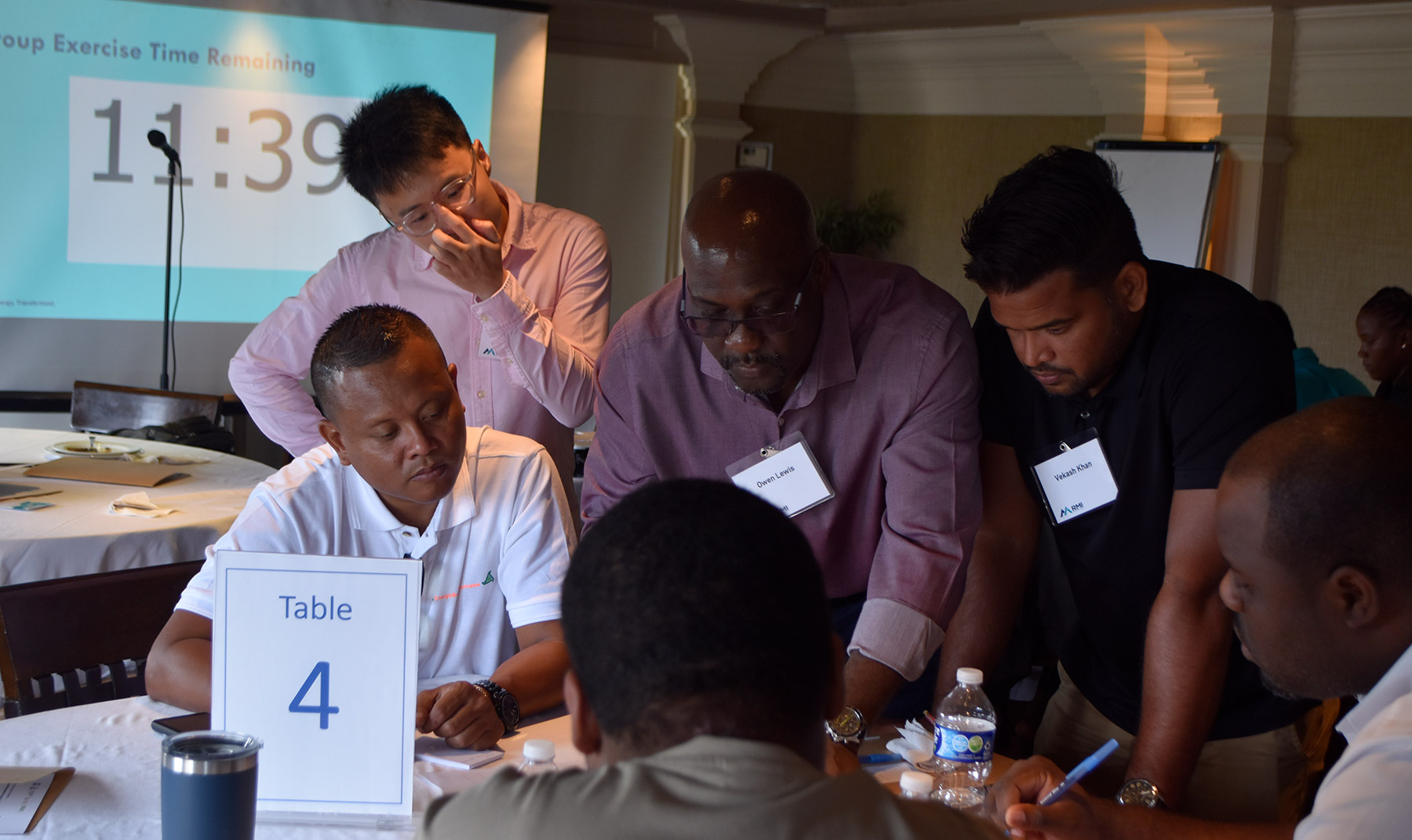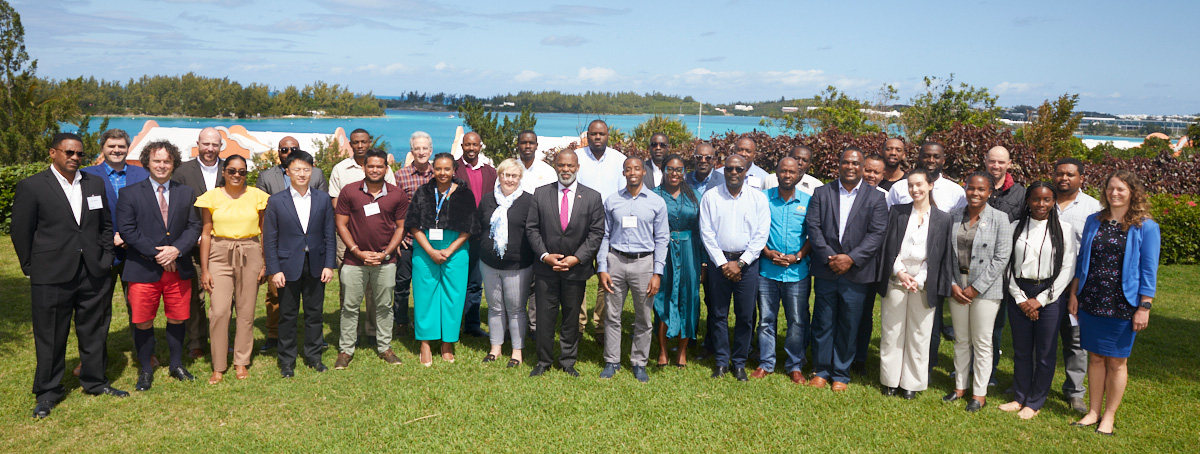
Lessons from the Caribbean: How to Empower Local Energy Leaders
Caribbean energy professionals lean on experiential learning and peer collaboration to advance the energy transition.
What do we need to accelerate the energy transition? You might say finance, enabling policies, or technology. While that is true, the most critical and essential need for the implementation of the transition is human resources. We need 30 million new and transitioned clean energy jobs in this decade to meet 2050 net-zero targets. Around 60 percent of the new jobs will require higher-level training.
The Caribbean — with its increasingly severe hurricanes and high energy prices and where energy resilience is critical — is one of the regions prioritizing elevating regional leadership. With access to abundant solar and other renewable energy resources, many Caribbean islands are implementing new solutions to a clean and resilient energy future. RMI’s Energy Transition Academy (ETA) is working with energy professionals from utilities and governments to advance the energy transition through the Global Fellowship Program.
The Fellowship Program is designed to facilitate experiential learning and peer collaboration among regional energy leaders and industry partners to create an ecosystem that can support and drive workforce training. The six-month program combines online learning focused on renewable energy project development, a self-driven Capstone Project, and an in-person Fellowship Summit including site visits and applied learning.
The Importance of Experiential Learning
Last month, 20 Fellows from 12 Caribbean jurisdictions gathered in Bermuda to attend the Summit — the culmination of the program. The Summit provided fellows an opportunity to build stronger connections, apply Fellowship Program learnings, and advance their renewable energy solutions together.
The site visits provided a unique opportunity to view real-world renewable energy project sites and collaboratively reflect on the best practices in project development. Bermuda was chosen for this year’s Summit due to its leadership in clean transportation and power, as showcased through the Department of Transportation’s electric public buses project, Saturn Power’s airport solar array, the Bermuda Electric Light Company’s battery energy storage system, and the commitment to procuring solar on more than 30 government buildings. Bermuda also provides a perfect case study on how key stakeholders — public and private sector entities, the utility, and the regulator — can work together to advance energy transition goals.
“The Summit provided a great opportunity to meet with like-minded professionals and share our thoughts on various topics,” says Mevrick Henry, an engineer in training from St. Vincent Electricity Services. “I also particularly enjoyed the site visits as they allowed us to see where we could be in the energy transition. The trip as a whole provided an opportunity to learn through experience.”

Fellows at the electric public bus site.
People Are Critical to the Transition
Participants in the Fellowship Program came from diverse professional backgrounds and various Caribbean islands and locations, including Turks and Caicos, Saint Lucia, Antigua and Barbuda, Dominica, Grenada, Guyana, Jamaica, Saint Kitts and Nevis, Saint Vincent and the Grenadines, Suriname, Saba, and Bermuda. While the majority are mid- to senior-level utility professionals, the most recent fellowship offering also welcomed two government professionals. Program participants share one common goal — to advance the clean energy transition in the Caribbean.
Haniff Woods is an operations engineer from Saint Kitts Electric Company (SKELEC). A certified electrician, his dad was always passionate about his work and that encouraged Haniff to enter the business of keeping the lights on. “I hope to advance the clean energy transition in the Caribbean by starting first in my home country through the utility company I currently serve,” says Woods. “I look forward to also extending that work in support of a clean energy transition across both the public and private sectors in St. Kitts.”

Fellows listen to the introduction at the 6 MW airport solar site.
Ernesto Kasban is a lead engineer from Energie Bedrijven Suriname (EBS). He joined the energy sector when he enrolled in the Inter-American Development Bank financed project to provide technical assistance to the Ministry of Natural Resources. They were responsible for supplying energy to the rural areas.
“Some of the villages are now in the transition to use renewables instead of fossil fuels by installing a complete hybrid photovoltaic (PV) plant,” says Kasban. “The ETA Fellowship Program for me was an eye opener. I have learned how projects can be implemented through various institutions and how other countries in the Caribbean have tackled this transition.”
Learning through Experience
The site visits were a highlight for many. “My favorite part of the Fellowship Summit was the site visits. Most events I attended in the past did not provide any opportunities to tour a country’s renewable energy facilities,” says Amanda Harris-Logie, a project officer at Guyana Power and Light (GPL) and a member of RMI’s Women in Renewable Energy Network. “Being able to observe the progress another country has made in the space is inspiring and motivating. I was particularly impressed with Bermuda’s 6 MW solar farm due to the land and financing availability. The availability of viable land and adequate financing are often major challenges that the region faces with the development of utility-scale projects.”
The Fellowship Program is also dedicated to ensuring that the diverse needs of the end users of the clean energy transition are met by equitably empowering women in the workforce.

Fellows at the airport solar project, a 19-acre site with 24,000 panels.
The 6 MW solar project at Bermuda’s airport won the Best Small Utility-Scale Project in the Caribbean award at the 2022 Caribbean Renewable Energy Forum Industry Awards. Kurt Savarin is an electrical engineer from Dominica Electricity Services Limited (DOMLEC). “The PV farm tour was an eye opener giving an up-close and detailed review of the resources, specifically the land space needed to commission such a facility. Again, we are exploring the option of implementing our first utility-scale PV plant back home and this insight is very helpful,” he says.
“The site visits were very educational. As Bermuda is ahead of us in terms of the goal of reaching 100 percent clean and renewable energy, there was a lot to learn and take back to my utility,” Raheem Hall, an electrical engineer from St. Vincent Electricity Services says. “It also allowed me to meet people who have faced, and dealt with, the same challenges that my utility is dealing with now. Their experiences have become stepping stones for us, as the region moves towards one common goal.”

Owen Lewis, an operations manager at RMI’s Islands Energy Program, explains the project feasibility exercise based on real-world project scenarios.
Advancing Renewable Energy Projects Together
A key objective of the Fellowship Program is to accelerate the development of utility-driven renewable energy projects. Since the beginning of this year, the Fellows have been developing and advancing their Capstone Projects as a core component of the Fellowship Program to apply learning and address their renewable energy development needs. Throughout the program, the Fellows supported each other in troubleshooting challenges and exchanged resources to move the projects forward toward implementation.
The Fellows developed 14 Capstone Projects including:
- Feasibility of the Application of Solar Batteries for the Remote Community at Plantation Alliance: This team, led by Fellows from EBS, explored the use of batteries to guarantee the electricity supply and replace the fuel consumption. “The idea of the use of batteries started after the construction of the PV plant in a rural area. As per the ongoing project, a fault in the river cable may result in a total blackout of the area,” says Kasban. “The use of batteries does result in less downtime of the area. We want to continue the existing project by seeking finance to implement the use of batteries.”
- Evaluation of Various Business Models for Electric Bus Adoption in Guyana: This project, created by Amanda Harris-Logie from GPL, compared the EV business models that would suit Guyana’s market and identified which type of low-carbon bus is most suitable for the market. “With the guidance I received from RMI and other experts in the region, I was able to zero in on the right information that was needed to prepare my Capstone Project,” says Harris-Logie. “Going forward, I hope to spark the conversation around the introduction of public electric buses in Guyana. I believe that once there is interest from the right stakeholders, this project can become a reality.”
- Guidelines for the Development of a Request for Proposal (RFP) for Engineering, Procurement, and Construction Contracts for Renewable Energy Projects: This project, championed by Vekash Khan, a technical officer from Antigua and Barbuda’s Department of Environment, is based on a solar carport project to be installed under the Sustainable Low Emission Island Mobility project. “I come from a non-utility government background. One of the issues we have is how we reach out to regional and international contractors. That is why I am creating guidelines to have better RFPs,” says Khan. “Now I have a general understanding of the code compliance for solar projects. My department will benefit as well. This will increase our knowledge of RFPs for solar projects and even other renewables projects. I did a lot of research and collaborated with ETA’s Ask an Expert service which provided sufficient information.”
Long-term Impact from Peer Collaboration
“The Fellowship Program is just the beginning,” says Khan. “The thing I enjoyed the most is the collaboration between the Fellows. We need to be involved with more parties from the region so we can create a larger network to work together toward the energy transition as a full force in the Caribbean.”
The Summit came to an end, but it opens the door for further collaboration and project implementation across the region. Haniff Woods and Jonathan Kelly from St. Kitts are enthused to explore a pilot project for the introduction of EVs and also small-scale solar on administrative buildings at SKELEC. Savarin’s utility, DOMLEC, is currently developing its Integrated Resource and Resilience Plan. “The information I have gathered in preparing my Capstone Project will allow me to provide some key insights during the process,” he says.
One of RMI’s key partners, Elizabeth Bullock, energy solutions assistant from the Caribbean Electric Utility Services Corporation (CARILEC), encourages the Fellows to share their Capstone Project results in the Caribbean Electric Industry Journal and at CARILEC conferences. RMI’s work in the Caribbean is driven through partnerships with CARILEC member utilities and the content shared with fellows builds on the years of collaboration with our utility partners and the lessons learned in project development.
Partnerships are ultimately important to scale the impact of community experiential learning, and to empower the transition workforce. The Global Fellowship Program will continue to grow and expand to more regions of the globe. The Fellowship alumni will continue to connect through the ETA Platform for resource sharing and engage with future Fellowship cohorts across different regions for broader impact.
Do you want to catalyze more impactful human stories like these? Join us in empowering tomorrow’s leaders today!

The Fellows and staff have a group photo with Deputy Premier and Minister of Home Affairs Walter Roban.